UArizona Cancer Center Awards & Publications (May 2021)
Finding Tomorrow’s Treatments, Today
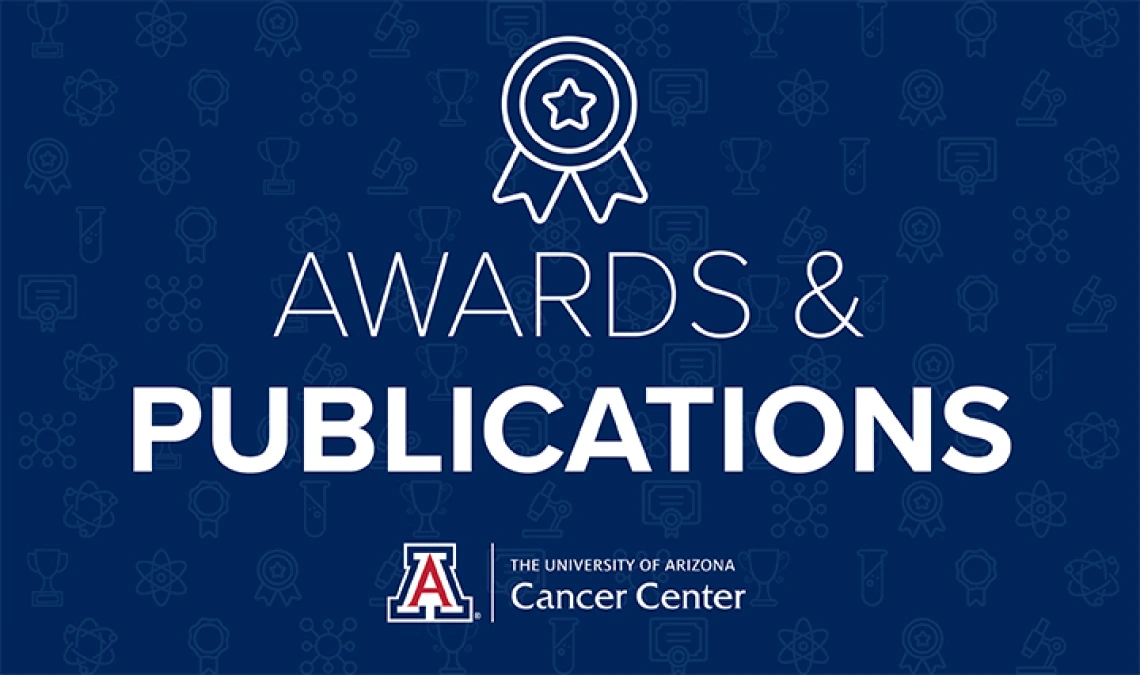
Awards Update: May 2021 (Basic-Clinical Partnership Awards)
At the University of Arizona Cancer Center, “bench to bedside” is more than a phrase. As the only National Cancer Institute-designated comprehensive cancer center based in the state, the UArizona Cancer Center is committed to delivering the latest discoveries from the labs of basic scientists to patients meeting with the clinicians.
While the Cancer Center prides itself on a national reputation that attracts many large federal funding mechanisms, truly novel research requires collaboration and just a little bit of start-up funding.
Basic-Clinical Partnerships (BCP), which include a basic scientist and a physician-scientist, are one of the smaller, internal funding sources that the Cancer Center uses to kick-start original research. Once preliminary data are gathered, there is the potential to turn the discoveries into larger clinical trials.
“The goal of these partnerships is for them to eventually become investigator-initiated trials,” said Joann Sweasy, PhD, the Nancy C. and Craig M. Berge Endowed Chair and Cancer Center director. “These are novel, cutting-edge projects that start right here at our Cancer Center. Then, we want to move these scientific discoveries to the bedside and impact patient care not only here at our center, but to patients all over the state, US and beyond through larger clinical trials.”
Below are several of the BCP projects that received funding this year.
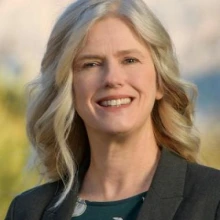
Julie E. Bauman, MD
Deputy Director, UArizona Cancer Center
Co-Leader, Clinical and Translational Oncology Program
Carlos Caulin, PhD
Cancer Biology Program
Project Title: Targeting cyclin-dependent kinases for treatment of HPV-negative head and neck cancer
Funding: $100,000 (two years)
Project Research: Drs. Bauman and Caulin are investigating the use of a drug known as abemaciclib, as a potential treatment for HPV-negative head and neck cancer. The medicine, a CDK4/6 inhibitor, is FDA-approved in breast cancer, and the researchers have preclinical evidence that shows the drug to be effective in preventing HPV-negative head and neck cancer in mice. Dr. Caulin’s lab will focus on better understanding the molecular mechanisms of why the drug is effective in preventing the cancer in mice, as well as looking for an immune biomarker that can show the difference in the T-cells of mice that receive
abemaciclib versus those that get a placebo. From the clinical perspective, Dr. Bauman will begin a clinical trial with HPV-negative head and neck cancer patients about to undergo surgery. Those patients will be given abemaciclib for two to three weeks prior to treatment. She wants to see whether the medicine shrinks the tumors and whether it may enhance the immune system inside their tumor microenvironment prior to treatment. Dr. Caulin will also take the findings from the human tumors and apply it to the mouse models for further investigation to better understand why the drug is working similarly or dissimilarly.
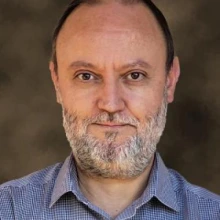
Carlos Caulin, PhD
Dr. Caulin Says: “Our two projects will be talking to one another. What we have learned from the mouse tumors has led us to prioritize what we will be studying in the human tumors. We will be looking to see if we changed or modulated the human tumors the same way we did with mice. If not, we will study what we do see in the human tumors and take that back to our mouse models. We will also be interested in observing any additional things we learn from the human trial that we may not have seen in the mouse models.”
Dr. Bauman Says: “This project has a couple different directions we hope it can go. One of them is the use of abemaciclib to modify the immune microenvironment and treat head and neck cancer in combination with other strategies. The other possibility for abemaciclib is to use it to prevent head and neck cancer in patients with oral pre-malignant lesions. Results from this study could lead to a larger, peer-reviewed NCI-funded clinical trial through our Cancer Prevention Clinical Trials Network.”
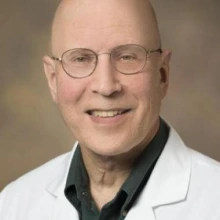
Edward Gelmann, MD
Clinical and Translational Oncology Program
Christopher Hulme, PhD
Clinical and Translational Oncology Program
Project Title: DYRK kinase inhibition restores prostate cancer suppression
Funding: $100,000 (two years)
Project Research: Dr. Gelmann’s lab has identified a kinase that is responsible for degrading an important prostate cancer suppressor. This kinase, known as DYRK1B, may be a viable therapeutic target to suppress prostate cancer growth or potentially prevent prostate cancer. The kinase is closely related to DYRK1A, which is linked by some researchers to neurodegeneration. As part of his Alzheimer’s studies, Dr. Hulme has been studying DYRK1A and various molecules that may suppress it. Research suggests that what inhibits DYRK1A, to some degree, also inhibits DYRK1B. Together, Drs. Gelmann and Hulme will be screening Dr.
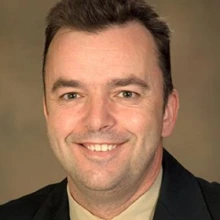
Christopher Hulme, PhD
Hulme’s DYRK1A compounds (and others) to determine if they may emerge as an effective therapeutic option for prostate cancer patients. If so, it would warrant further investigation in the clinical setting.
Dr. Gelmann: “With this process, we are screening some of Dr. Hulme’s compounds and also some others that we have access to. We want to see whether they will act as potential prostate cancer inhibitors in our models. And if we find one, then there's the possibility of either modifying it or developing it for preclinical and clinical work.”
Dr. Hulme: “The long-term implication is, if everything works perfectly, we could have an oral kinase inhibitor that would block the growth of prostate cancer and possibly prevent the cancer in people with precancerous lesions.”





